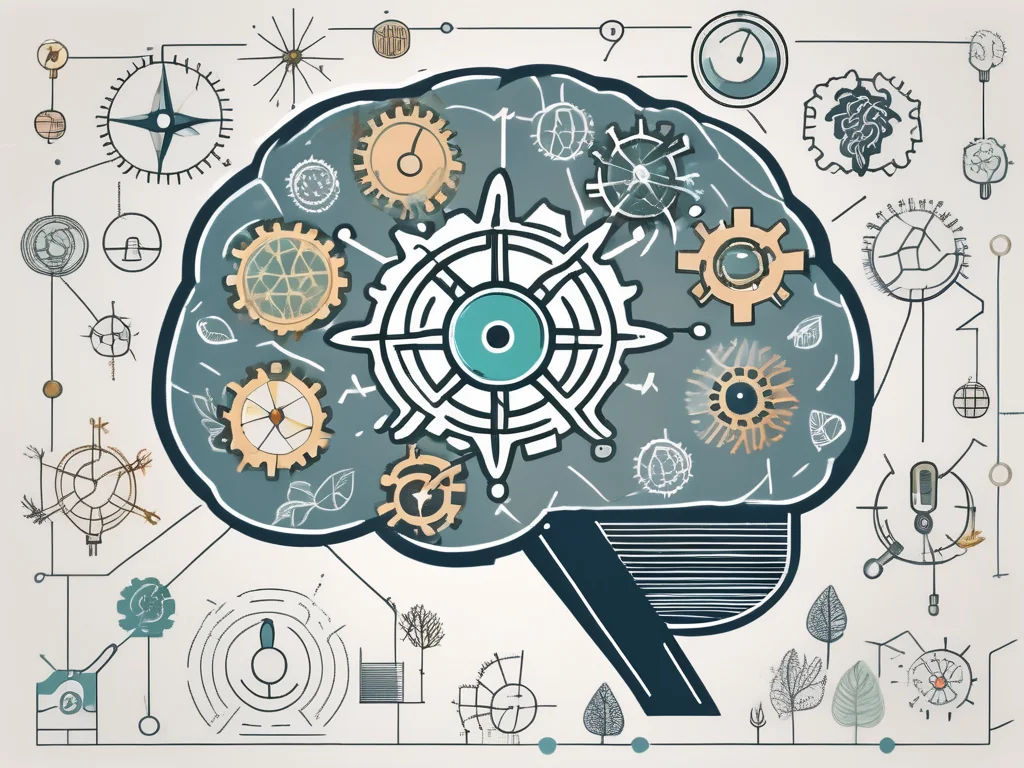The idea that masturbation causes memory loss is a persistent myth that has sparked curiosity and concern. Memory is a vital cognitive function, enabling us to learn, make decisions, and recall experiences. However, misconceptions about masturbation’s impact on memory often stem from misinformation rather than science. This blog dives into the relationship between masturbation and memory, exploring cognitive functions, debunking myths, and offering insights into maintaining brain health. By addressing common questions like “Does masturbation affect memory?” and “What influences cognitive health?”, we aim to provide clarity using evidence-based information.
What Is Memory and How Does It Work?
Memory is the brain’s ability to encode, store, and retrieve information, playing a central role in cognitive functions like reasoning, learning, and problem-solving. It involves multiple brain regions working together to process information through distinct stages:
- Sensory Memory: Briefly holds sensory input (e.g., sights, sounds).
- Short-Term Memory: Temporarily stores information for immediate tasks.
- Long-Term Memory: Retains information for extended periods, including:
- Episodic Memory: Personal experiences (e.g., your last birthday).
- Semantic Memory: General knowledge (e.g., facts, concepts).
- Procedural Memory: Skills and habits (e.g., riding a bike).
Understanding these types helps clarify why myths about masturbation and memory loss lack scientific grounding.
Does Masturbation Cause Memory Loss?
One of the most common questions is whether masturbation negatively impacts memory. The short answer is no. There is no scientific evidence linking masturbation—a natural and healthy sexual activity—to memory loss or cognitive decline. Masturbation involves self-stimulation for sexual pleasure and is a normal part of human sexuality. Far from harming the brain, it may offer benefits like stress relief and improved mood, which can indirectly support cognitive health.
Key Points:
- Masturbation does not cause physical or mental weakness.
- It has no impact on fertility or cognitive functions like memory.
- Endorphins released during masturbation promote relaxation, potentially enhancing mental well-being.
Common Myths About Masturbation and Memory
Several myths fuel misconceptions about masturbation’s effects on cognitive health. Let’s address the most prevalent ones:
- Myth: Masturbation Leads to Memory Loss
Fact: No research supports this claim. Memory loss is typically linked to medical conditions like Alzheimer’s, brain injuries, or aging, not sexual activity. - Myth: Masturbation Causes Mental Weakness
Fact: Masturbation is a safe activity that does not impair mental or physical health when practiced in moderation. - Myth: Masturbation Affects Fertility
Fact: There is no connection between masturbation and infertility. It’s a healthy way to explore one’s body.
These myths often arise from cultural stigmas or outdated beliefs, but science consistently debunks them.
How Does Masturbation Affect Cognitive Function?
Rather than harming cognitive function, masturbation may have positive effects. Studies suggest sexual activity, including masturbation, can:
- Reduce Stress: Masturbation triggers the release of endorphins, which act as natural mood elevators, reducing stress that can impair memory.
- Improve Sleep: The relaxation following masturbation can enhance sleep quality, supporting cognitive health.
- Boost Mood: Positive emotional states from sexual activity can improve overall mental well-being, indirectly aiding memory retention.
A study in the Archives of Sexual Behavior found that sexual activity in older adults was linked to better cognitive function, including memory. While more research is needed, current evidence suggests masturbation is neutral or beneficial to brain health.
What Factors Influence Cognitive Health?
Cognitive health, including memory, is shaped by a combination of biological and environmental factors. Understanding these can help you prioritize brain health over unfounded concerns about masturbation.
Biological Factors
- Genetics: Your genetic makeup can influence susceptibility to cognitive disorders like dementia.
- Age: Memory declines are more common with aging, but this is unrelated to sexual activity.
- Physical Health: Regular exercise, a balanced diet, and adequate sleep support cognitive function.
Environmental and Lifestyle Factors
- Stress: Chronic stress can impair memory and focus.
- Social Connections: Strong social ties enhance cognitive resilience.
- Intellectual Stimulation: Activities like reading or puzzles keep the brain sharp.
- Unhealthy Habits: Excessive alcohol or drug use can harm cognitive health.
Focusing on these factors, rather than myths about masturbation, is key to maintaining memory and cognitive well-being.
Scientific Perspectives on Masturbation and Memory
Research on masturbation and memory is limited, but the available evidence is clear: masturbation does not cause memory loss or cognitive decline. Studies highlight potential benefits of sexual activity, including:
- Cognitive Benefits in Older Adults: Research suggests sexual activity may support mental functioning in aging populations.
- Stress Reduction: Masturbation’s calming effects can indirectly improve cognitive performance by reducing stress hormones.
The scientific consensus is that masturbation is a normal activity with no detrimental effects on memory. Instead, overall lifestyle choices play a larger role in cognitive health.
How to Maintain Cognitive Well-Being
To support memory and cognitive function, adopt these evidence-based practices:
- Exercise Regularly: Physical activity increases blood flow to the brain, enhancing memory and focus.
- Eat a Balanced Diet: Nutrient-rich foods like fruits, vegetables, and omega-3 fatty acids support brain health.
- Get Enough Sleep: Quality sleep consolidates memories and improves cognitive performance.
- Manage Stress: Techniques like meditation or mindfulness reduce stress, which can impair memory.
- Stay Mentally Active: Engage in puzzles, reading, or learning new skills to keep your brain sharp.
- Maintain Social Connections: Social engagement supports emotional and cognitive health.
Masturbation, as part of a balanced lifestyle, can contribute to stress relief and mental well-being, complementing these practices.
When Should You Seek Professional Help?
Occasional forgetfulness is normal, but persistent memory issues may warrant professional attention. Consult a healthcare provider if you experience:
- Significant memory lapses affecting daily life.
- Difficulty concentrating or reasoning.
- Symptoms of depression, anxiety, or chronic stress impacting cognition.
A doctor or neurologist can assess your symptoms, rule out underlying conditions, and provide tailored guidance.
Mental Health and Its Role in Memory
Mental health is closely tied to cognitive function. Conditions like depression or anxiety can impair memory and focus. Masturbation, by promoting relaxation and reducing stress, may support mental health, indirectly benefiting memory. However, if mental health issues persist, seek support from a therapist or counselor to address root causes.
People Also Ask: Common Questions Answered
1. Can masturbation improve cognitive function?
While not directly improving memory, masturbation can reduce stress and enhance mood, creating a positive environment for cognitive health.
2. Does frequent masturbation harm the brain?
No, there’s no evidence that frequent masturbation harms the brain or memory when practiced in moderation.
3. What causes memory loss?
Memory loss is typically caused by aging, neurological disorders (e.g., Alzheimer’s), brain injuries, or lifestyle factors like poor diet or stress, not masturbation.
4. How can I improve my memory naturally?
Engage in regular exercise, eat a balanced diet, get adequate sleep, manage stress, and stay mentally active with puzzles or learning.
Conclusion: Separating Fact from Fiction
The myth that masturbation causes memory loss lacks scientific support. Memory is a complex function influenced by genetics, age, lifestyle, and health, not sexual activity. Masturbation is a normal, healthy practice that may even support cognitive health by reducing stress and improving sleep. To maintain optimal brain function, focus on a balanced lifestyle, including exercise, nutrition, and mental stimulation. If memory concerns persist, consult a healthcare professional for personalized advice. By debunking myths and embracing evidence-based practices, you can prioritize cognitive well-being with confidence.



